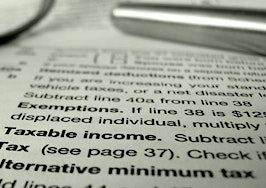- The benefit of Trump’s tax plan for most agents hinges almost entirely on how self-employment taxes are treated for pass-through businesses, something the official proposals to date are entirely silent on.
The Trump administration released a revised tax reform proposal on Wednesday, which you can read in full here. The real estate industry is abuzz trying to decipher if the updated proposal helps or hurts agents — while the jury is still out, the realistic answer, frustratingly, is “it depends.”
For a general analysis of the latest plan, I recommend checking out Brad Inman’s excellent piece published yesterday.
In this article I’ll be updating the calculations to my Trump tax commentary from May, which aims to answer: for the average real estate agent, does Trump’s tax plan help or hurt your actual profitability?
Assumptions
For the sake of comparability we’re going to make several assumptions to compare your real estate agent bottom line under the current tax system to the proposed code.
Although these assumptions aren’t perfect, I’ve tried to strike a balance between ease-of-calculation and realism so you can get a better sense of what your actual profit may look like.
The assumptions are as follows:
- Business income: $100,000*
- Filing status: Single
- State income tax rate: 6 percent
- State tax deduction: $5,000
- Standard deduction taken
- Personal exemptions: 1
- Business entity type is sole proprietor, partnership, S Corporation or LLC (aka “pass-through” entity)†
Trump’s proposals have been silent on whether pass-through businesses that real estate agents operate as will have to pay the so-called “self-employment tax.” This is the tax regular employees pay into Social Security and Medicare programs, multiplied by two (to account for both the employee and employer portion of the tax).
For our goal of comparing current versus projected tax implications, how self-employment tax is handled is a massive question mark and one the administration has basically told Congress to “figure out.” This commentary published yesterday in the New York Times came to roughly the same conclusions.
For example, if pass-through entities still have to pay the 15.3 percent self-employment tax plus the flat 25 percent business income tax rate, in addition to state income tax (where applicable), only the top-performing real estate agents — those clearing $400,000-plus in net business income each year — will see any significant profit boost because their business income is already effectively taxed above 25 percent.
On the other hand, if pass-throughs become exempt from paying self-employment tax (similar to how rental and capital gains income is treated currently), then many agents will see a significant jump in after-tax profits, as the higher effective federal income tax rate would be offset by not having to pay self-employment tax.
After struggling with how to present this unknown, I’ve shown two scenarios below: one including self-employment tax as it’s currently handled, and one without self-employment tax.
I also assumed that pass-through businesses would not be able to take the new standard deduction amounts on their business income. Real estate agents currently are allowed to subtract both business expenses and the standard deduction (or itemized personal expenses) before calculating taxes, which is a significant tax benefit.
*Since real estate business income = commissions – deductible expenses, I used the 2017 median home listing price per Zillow and 17 closings per year (1.4 average per month) to reach $130,000 in gross business income. Subtracting $30,000 in business expenses (including things like mileage) nets $100,000 in business income, which is realistic for veteran full-time agents.
† Agents don’t need to elect or create a business entity to be considered a business in the eyes of the government. By default, real estate agents are considered sole proprietors and would file via Schedule C, enabling them to deduct their business expenses and pay the proposed pass-through flat tax rate of 25 percent, rather than individual tax rates.
Current tax code vs. Trump tax proposal
| Current tax code | Trump plan (with self-employment tax) | Trump plan (no self-employment tax) | |
| Net business income | $100,000 | $100,000 | $100,000 |
| Standard deduction | (6,350) | N/A | N/A |
| Personal exemption | (4,050) | N/A | N/A |
| Self-employment deduction | (7,065) | (7,065) | N/A |
| Taxable income | 82,535 | 92,935 | $100,000 |
| Federal income tax | (16,373) | (23,234) | (25,000) |
| Self-employment tax | (14,130) | (14,130) | N/A |
| State income tax | (5,700) | (5,700) | (5,700) |
| After-tax profit | $63,797 | $56,936 | $69,300 |
| % Increase (+) or decrease (-) in profitability | -10.75% | +8.63% |
Conclusion
The benefit of Trump’s tax plan for most agents hinges almost entirely on how self-employment taxes are treated for pass-through businesses, something the official proposals to date are entirely silent on.
If real estate agents have to pay self-employment taxes at the current 15.3 percent rate, only the uppermost echelon of agents will see any tax benefit, and some agents may even end up paying more in taxes, quite the opposite intended effect.
Alternatively, if pass-through entities are exempt from paying self-employment tax, or are required to pay at a lower rate than currently mandated, many real estate agents will realize a sizable profitability increase.
While it’s understandable that Trump’s tax proposal is simply a framework at this stage and not intended to be a finished product, there remain many important unanswered questions.
Ironically, we could see a more — not less — complicated tax situation for millions of small business owners like real estate agents.
Aaron Lesher, CPA, is part of the Customer Success and Growth team at Hurdlr, the developer of ProfitDash, in Washington, D.C. Aaron also helped create a free tax resource for self-employed entrepreneurs called 99Deductions. Follow Aaron on Twitter or connect with him on LinkedIn.












